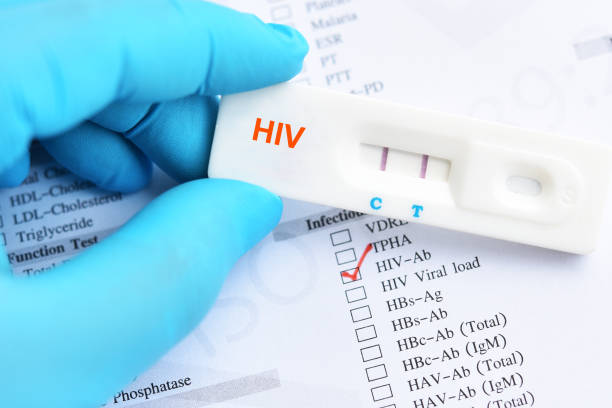HIV, or Human Immunodeficiency Virus, is a severe disease that is supposed to be identified early in order for appropriate treatment to be sought. As medical technology advances, it is possible today for individuals to test for the virus either from clinics or from within their homes by bringing quick results in. The rapid result test for HIV is designed to give people knowledge about their HIV status in less than a reasonable amount of time, such as 20 minutes.
What is a Rapid Result HIV Test?
A rapid test for HIV is testing that detects antibodies or antigens to HIV in the blood, oral fluid, or urine of an individual. In addition to the regular tests, which take a few days, the results from this test are ready in a matter of minutes. Such tests are highly useful for individuals who feel apprehensive about their condition and would want an answer as soon as possible.
Types of Rapid Result HIV Tests
There are numerous forms of rapid result HIV tests; all varying in their virus detection method. They include:
Blood HIV Rapid Tests: This involves the taking of a blood sample, either by a finger prick or a venipuncture – in the arm. The blood will then be tested for antibodies of HIV. These tests can produce results in 20 minutes or less.
Rapid HIV Oral Fluid Tests: These tests use a sample of oral fluid that is not saliva to find antibodies to HIV. The fluid is drawn from the gums and cheeks and yields results within a time period of 20 to 40 minutes.
Rapid HIV Urine Tests: Less common than blood or oral fluid tests are tests that use urine samples in detecting antibodies to HIV. These test results are usually ready in 20 minutes.
How Does a Quick Result HIV Test Work?
Quick result tests for HIV work by the principle of detection of antigens or antibodies produced in the body against the virus. When the virus of HIV enters into the body, the defense mechanisms produce antibodies against the virus. These tests search for these antibodies or antigens. The process of taking a test includes:
Sample Collection: The sample will be either blood, taken through a finger prick or blood draw, an oral fluid sample, or a urine sample, depending on the type of test.
Processing of the Sample: The collected sample is processed on special test devices that are designed to react to HIV antibodies or antigens. Most of the kits contain a set of instructions to assure accuracy in the results.
Reading the Results: After some time-usually from 20 to 40 minutes-the results will appear. In case the test finds antibodies against HIV, the test result will be positive; otherwise, the test result will be negative.
Confirmatory Testing: A single positive finding from a rapid test for HIV does not really establish virus infection. Confirmatory testing to establish the diagnosis will be needed, such as follow-up testing using a laboratory-based ELISA test or Western blot test.
Benefits of Rapid Result HIV Tests
Speed: One of the most useful advantages of the rapid result HIV testing is its speed. It will not keep one waiting for days to get the results, but rather it offers an almost immediate determination of status.
Convenience: The majority of the HIV rapid tests have been made available in clinics, pharmacies, and even online for convenience. Home test kits offer an individual privacy and comfort since they are assured of conducting the test within their confines.
Privacy: Quick result HIV tests in London guarantee some level of privacy, especially because they are taken within the confines of the home. Many have not gotten tested due to the issue of privacy; these tests eliminate that stress.
Accessibility: A number of health bodies and governments encourage HIV testing by providing either free or less-expensive rapid testing to help in controlling the virus.
How Accurate Are Quick Result HIV Tests?
While quick result HIV tests are highly accurate, no test is 100% perfect. A false negative or false positive can occur if the test is taken too early in the infection-a time when the body has not developed enough antibodies or antigens. Most HIV tests are most accurate when taken between 2 to 6 weeks after a possible exposure. If you test positive, confirmation and advice by a health professional are very important.
A rapid result HIV test is a perfect example for persons who want to know their status immediately in private. These tests bring convenience, speed, and the peace of mind that emanates from knowing your health status. Remember, while these tests are an important part of early detection of HIV, confirmation by a healthcare expert is essential for diagnosis.
Getting tested is the responsible thing to do to protect yourself and others. Always seek additional guidance from your healthcare professional and follow-up on any positive test result.

